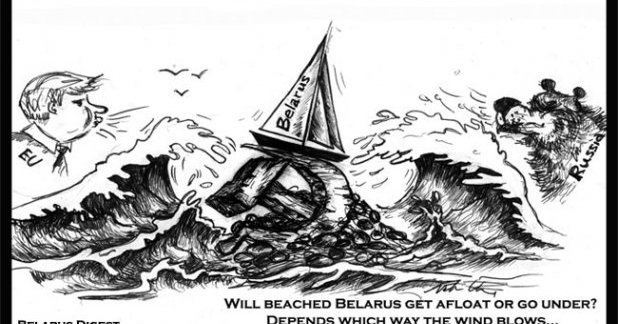However, while visiting Minsk on 15 November, EU Commissioner for Enlargement Štefan Füle did evoke the work and efforts made regarding visa procedures ad their simplification, thus alluding to the EU Council’s recommendations on 25 October. Yet, despite reconcilation moves, Loukachenka has accused the EU of starting up a revolution. He claims elections have always been held democratically and have been in line with the Belarus people’s will. Several Belarus authorities are to be banned from the European territory for another 12 months as the EU recently extended the sanction. The ban is temporarily suspended, but an evaluation is to be held after the elections.
Although the EU seems ready to start the reconciliation process, Loukachenka seems less than willing to seize the opportunity. Globally speaking, Belarus does not tend towards democracy as member States keep pointing out. They also keep reproaching the EU and the IMF of overlooking this point in their strategies. Sweden is indeed a keen human rights defender. It was recently joined by the Italian parliament on this matter.
Regarding the elections, the EU keeps asking for free and democratic elections. Surprisingly, Loukachenka pledged it would indeed be the case while he addressed the Polish people. Did he forget it had always been the case ? However, reality is quite different. Althought the launch of the Oriental Partnership corresponded to a calmer period, key factors of the presidential campaign were threatened or put to jail, money transfers for the campaign were blocked, and materials confiscated. Journalist Aleh Byabenin, counsellor of the main opposition candidate Andrei Sannikov, died in very strange circumstances as he committed suicide on the day before the campain started.
EU’s will for reconciliation, seen as an alternative to Russian domination, is particularly well seen. Even more so since the EU is currently looking for a Belarus ambassador to replace the technical counsellor who has represented Brussells so far. However, regarding bilateral relations, 4 positions co-exist among the 27 member States. This comes from the fact that Russia and Belarus tend to negociate with each member State rather than with the EU as an entity.
Typically, several countries wish to improve their relations with Belarus, such as France, whose Secretary of State Pierre Lellouche visited Belarus. The Czech Republic recently decided to open an embassy there. It also supports opposition candidates, which it sees as strong personalities. In the meantime, states such as Slovakia have chosen to limit contacts with Belarus while favouring Ukraine. Besides, the UK and Poland - traditionally in contact with Belarus - as well as Germany - one of its main commercial partners - support the opposition and a potential democratic government.
Finally, Lithuania has held a more ambiguous position. Reconcilation has been forstered by all means, such as reciprocal visits between Lithuanian and Belarus officials. Lithuania even accepted to transfer Venezuelian oil to Belarus through the Port of Klapeida. It may even be considered as a European Ukraine. Lithuania defended its position by highlighting Belarus’s dissenting policy towards Russia.
According to Lithuanian president Dalia Grybauskaite: « Loukachenka ensures Belarus’s economic and political stability » and prevents its neighbour country «from becoming a second Russia». This is precisely what is feared. Yet the answer lies in two questions : how could the russian presence be integrated ? Failing that, how could it be brought towards more democracy, considering there is a strong dependence from EU and Belarus towards Russia regarding gas and oil supplies ? Hence the need for a mutual strategy regarding energy management.



Follow the comments: |
|
